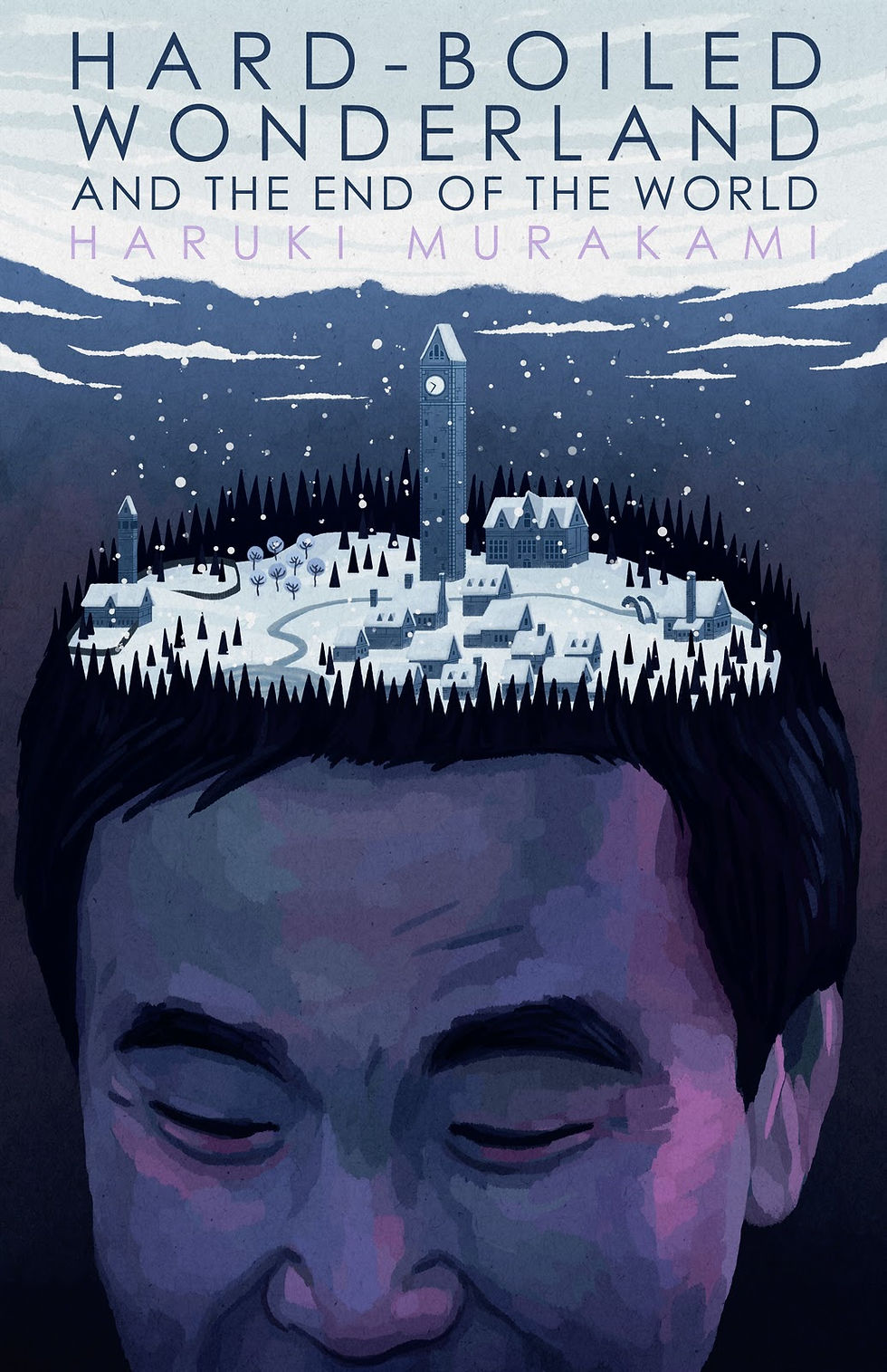Hard-Boiled Wonderland, Haruki Murakami
- carmillavoiez

- Apr 30, 2017
- 2 min read

I wish I could write books like Haruki Murakami, where the real and the unreal bleed into one another. The mundane seems extraordinary and magic hovers in the wings. Although it isn’t my favourite of his books, Hard Boiled Wonderland is still a beautiful read.
It's a book about identity and consciousness. It’s written in first person and the narrator switches between different locations from chapter to chapter. One of these locations is not in our world, although it is called “The End of the World”. We learn more about the origin of this strange walled town as the story progresses.
The protagonist's job is to scramble and encode data using his mind. Through a series of strange situations we learn how divorced body and mind feel for this character.
“The further we travelled in the darkness, the more I began to feel estranged from my body. I couldn’t see it, and after a while, you start to think the body is nothing but a hypothetical construct.” I didn’t realise until I finished, but nobody in the story has a name, or at least no one is referred to by name. They are always “Grandfather”, “son”, the librarian, the old man, the colonel, the chubby young woman. I suspect this is to reinforce our narrator’s lack of sense of self, everyone is referred to by their role or appearance. Identity has no depth, which is literally true in "The End of the World".

Connections are hinted at between the two worlds, these include music - in particular the song "Danny Boy", the librarian and animal skulls, including a skull that may or may not have come from a genuine unicorn. "Hard-Boiled Wonderland and the End of the World" would be best described as magical realism. A surreal thread winds through the entire book. Murakami is considered by many to be Kafka’s successor, and that idea that holds water. If you haven’t read any Murakami yet my favourites are “The Wind Up Bird Chronicle” and “Kafka on the Shore”, but they are all engaging, intelligent and thought-provoking reads.
4.5/5 stars.




Comments